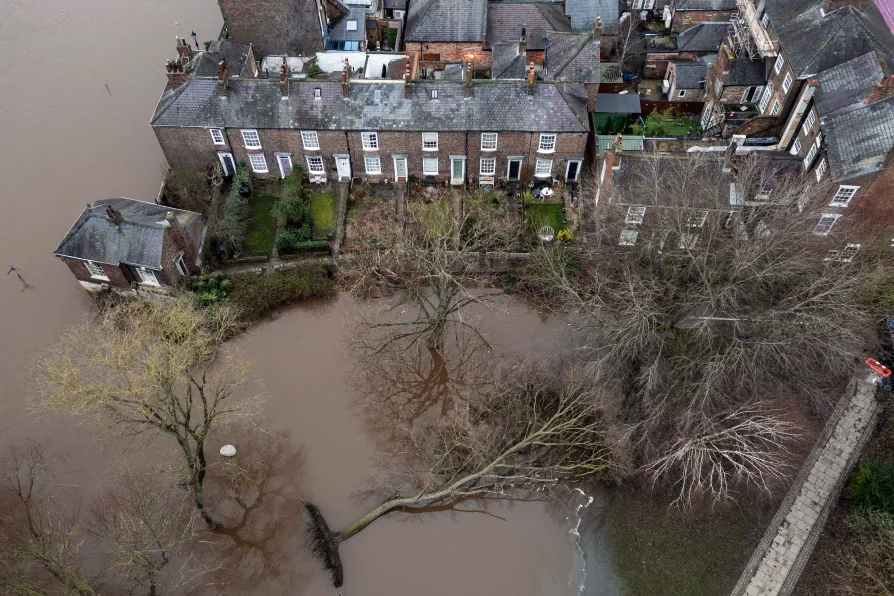Many voters in Britain’s most rural constituencies are worried about climate change and support net zero

 A fallen tree in flood water in York, January 23, 2024
A fallen tree in flood water in York, January 23, 2024
MANY voters in Britain’s most rural constituencies are worried about climate change and support net zero and local renewables, polling suggests.
A survey for the Energy and Climate Intelligence Unit think tank (ECIU) backs up other polling showing Labour pulling ahead of the Tories in their traditional heartlands, with 35 per cent of the vote.
That compares with 30 per cent for the Conservatives — down from 50 per cent in 2019.
Similar stories

ALASTAIR BONNETT reports on the paradoxes of populist attitudes towards protection of the natural world

The government’s nuclear power expansion plan is a hollow betrayal of working people that panders to wealthy corporations and will rip off consumers, writes LINDA PENTZ GUNTER












